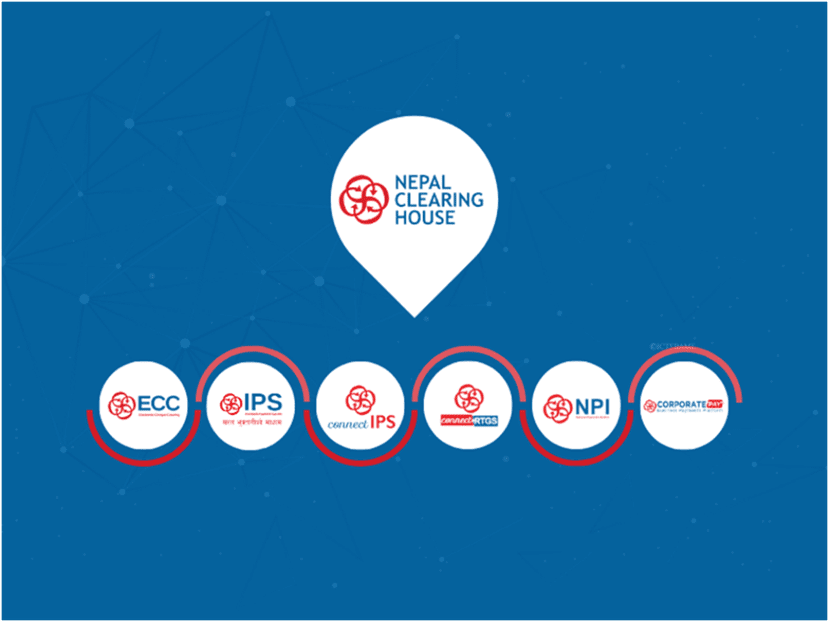Impact Of Digital Payment And Contribution Of NCHL Products In Capital Market Sector
24 March 2021, Kathmandu
Digitalization in banking refers to the application of technologies that transforms the bank’s existing business module into a new one. It can consist of internet banking, mobile banking, and more.
Due to the existence of such systems, most people find it obsolete to visit banks or financial institutes. That’s exactly why these digital payment systems were developed.
Electronic payments, especially in the capital market sector, had increased a lot during the early Covid-19 phase in Nepal.
Users no longer needed to step out of their comfort at home to make transactions. However, it doesn’t come without any challenges.
Challenges in the digital payment sector of Nepal
The first and foremost challenge is ‘acceptance’.
Stakeholders and users in a digital payment ecosystem are equally important. It can be a hectic process to get service providers on board.
Moreover, the development and operation of such systems, their infrastructures, and security features can be another.
“In the present context, the process for getting service providers on board for integrating online transactions to sell their products/services is quite lengthy,” said Neelesh Man Singh Pradhan (CEO of NCHL) in an old interview with ICT Frame.
“Similarly, their acceptance is also relatively slower. So, I guess the process for involving them in this ecosystem is the first challenge.”
When it comes to convenience and efficiency through digital payment in the capital market sector, Nepal Clearing House (NCHL) has done wonders with its products.
What is NCHL?
It is a public limited company established on 23rd of December, 2008 under the guidance and leadership of Nepal Rastra Bank (NRB).
Thanks to NCHL, cheque clearing is possible in one day. History is evidence that 10 years ago before its establishment, customers had to wait a long month for cheque clearance.
The company since has started a number of payment-related activities for the convenience of customers.
How has NCHL contributed to the capital market sector?
When it comes to its operation, the overall strategic plan of NCHL is to implement policies set by NRB.
To meet its objectives, NCHL has been actively involved in customer’s best interest which led to the launch of its products:
Electronic Cheque Clearing (NCHL-ECC)
The ECC system from NCHL is a platform that enables the electronic transfer of cheque images through a secure medium.
Ultimately, this product has replaced the traditional routine of moving paper-cheques between the bank and clearinghouse.
The result? Significant saving of time for both banks and customers.
Interbank Payments (NCHL-IPS)
NCHL-IPS enables safe and efficient fund transfer from one account to any account provided the accounts are held at a member bank and financial institutions (BFIs).
This system supports account to account payments (direct credit) and collection (direct debit) related transactions.
At present, the product supports transactions in four currencies – NPR, USD, GBP, and EUR.
connect-IPS e-Payment
connect-IPS is an electronic payment system from NCHL that allows customers to transfer funds and pay for services from various channels.
You can process transactions directly from/to your bank accounts. However, be mindful of the fact that the participating accounts need to be held at member BFIs.
Using this platform, you can make government payments, transfer funds online, make credit card bill payments, top-up mobile, make payments to share brokers, and so on.
NCHL aims to add more services to connect-IPS in the near future.
connectRTGS
Real-Time Gross Settlement (RTGS) system supports high-value and urgent transaction processing between the participating BFIs.
In addition, it also supports the same for settlement of systemically important payment systems on a net settlement basis.
Nepal Rastra Bank hosts and implements the central RTGS system.
Now, connect-RTGS from NCHL provides integration for the BFI internal system with the RTGS system hosted by NRB.
Basically, it serves as a gateway that enables BFIs to initiate and process such transactions.
National Payments Interface (NPI)
NPI is a consolidated APIs (Application Programming Interface) of NCHL-IPS, connect-IPS, and other systems.
It supports push transactions with seamless integration with NCHL’s connect-IPS for real-time instant payments. Similarly, it has similar applications to support NCHL-IPS for deferred credit payments.
Participating BFIs have subscribed to NPI to enable their alternate channels such as mobile banking, internet banking, remittance system, and so on.
CORPORATEPAY
NCHL’s business payment platform – CorporatePAY facilitates transactions for its member BFIs to process real-time payments with multi-user controls.
In fact, non-real-time bulk payments are also possible.
Subscribers can avoid visiting banks or financial institutions by switching to CorporatePAY. This will limit their physical interactions with the financial institutes.
National Archive System
NCHL also provides additional service to the member BFIs. Check these out:
National Cheque Archive – Using this service, member BFIs can access old cheques and their transaction details.
Cheque transactions older than three months move to the National Cheque Archive from NCHL-ECC.
This makes it possible to store the cheques for a longer period (7 years as per current policy).
NCHL-IPS Archive – This additional service allows members to access past transactions older than 3 months and up to seven years (as per current policy).
Conclusion
When smartphones are sufficient, why carry cash or cards?
The efforts of digital payment stakeholders and service providers seem that way, which is in favor of user convenience.
A 100% cashless economy may still be a far-fetched idea for our country due to security reasons and the digital divide. However, companies like NCHL are doing their best to bridge the gap at a fast pace.
Do you find NCHL’s products useful for your daily operations? Let us know!







